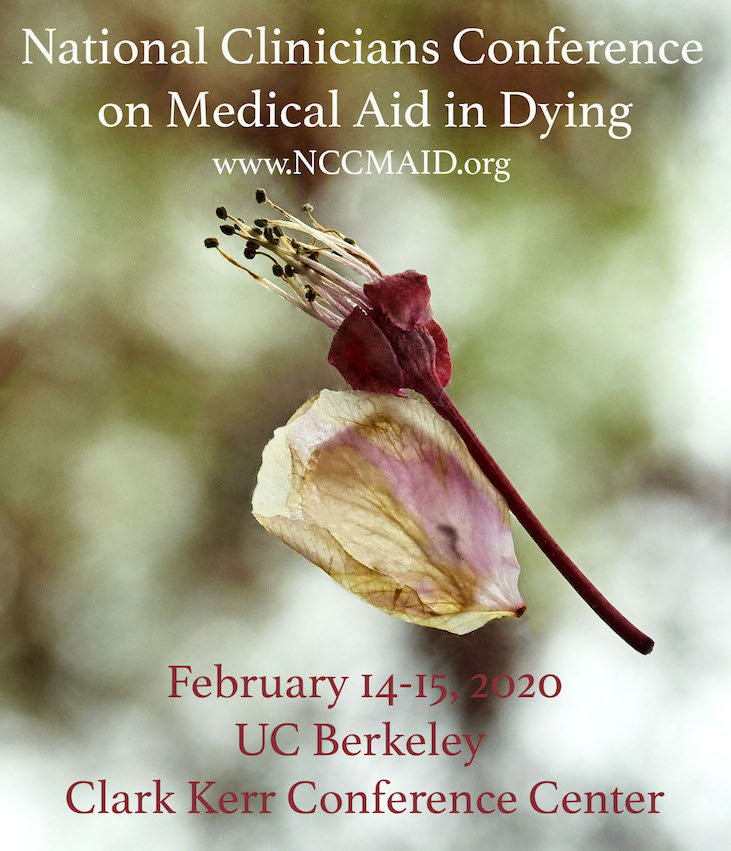
The incentive for the National Clinicians Conference on Medical Aid in Dying originates from the pressing need for clinical discussions, explorations and evidence-based knowledge about medical aid in dying. In the past three years, Oregon, Montana, Vermont and Washington were joined by California, Colorado, Hawaii and, most recently, New Jersey and Maine, as states with legal access to medical aid in dying. Some 22% of the U.S. population now has access to medical aid in dying, so it has become a significant part of terminal patients’ end-of-life options. And patient requests to consider medical aid in dying as one option at the end of life have driven clinicians’ need to respond with support and knowledge.
A few practitioners most deeply involved in medical aid in dying have fielded an increasing number of questions and concerns from other providers urgently requesting practical information. And while there have been many gatherings to discuss medical aid in dying in policy and social terms, there has been little opportunity for clinicians to learn of evolving bedside practices.
Doctors, nurses, social workers, chaplains, clinical ethicists, pharmacists, hospices and more have been providing and managing this care without formal training or information sharing. They are craving knowledge of and training in standards of care and best practices—everything from prognoses to pharmacology, from the role of hospice teams to evaluations of decision-making capacity, or what “self-administration” means in the real world. In short, there is now a significant need and demand for a conference for those at the bedside.
The National Clinicians Conference on Medical Aid in Dying is organized by a respected board of advisors, including representatives from UCSF, UC San Diego, UC Berkeley, UC Davis, the University of Colorado, and practitioners from multiple hospices and end-of-life care organizations. The conference will take place on February 14 and 15, 2020, at the University of California, Berkeley. CME and CE credits will be available for the practitioners who attend.
We have chosen to keep the two-day conference fee within reason for as many practitioners as possible, with physicians/pharmacists/NPs/administrators at $500 and all others at $400, including CME/CE credits and lunch and snacks on both days. A limited number of scholarships will be available with appropriate requests that demonstrate financial need.
In short, the first National Clinicians Conference on Medical Aid in Dying is now a reality, and we invite all who are interested to attend. Stay tuned at www.nccmaid.org for updates.
